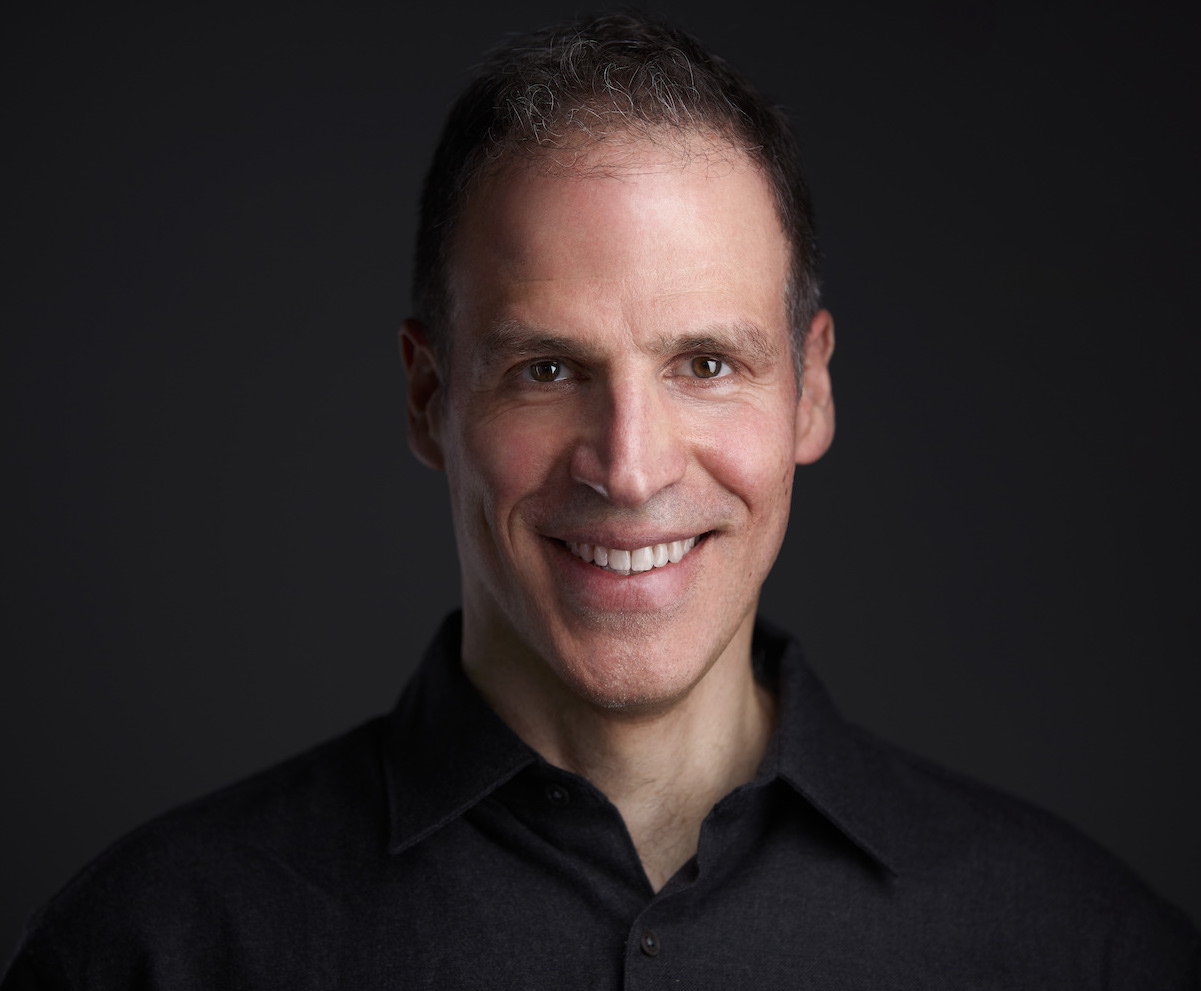Every CEO wants to be influential, but do you overestimate the impact you actually have?
The key to becoming a great leader in the digital age lies in stepping back getting the basics right.
Alain Hunkins is the CEO of Hunkins Leadership Group and the author of Cracking the Leadership Code.
Influence over authority
A recent study by MIT states that only 12 percent of employees feel their leaders have the right mindset to lead them into the future. Clearly, a huge gap separates what leaders think of themselves and how team members perceive them.
Alain rightly points out that high performers do not always make great leaders. High performers without a leadership mindset are naturally tuned to value “efficiency in spite of effectiveness”. They unconsciously mimic patterns of their previous leaders and reinforce these patterns with authority. Bad habits are repeated and passed on unconsciously.
Intentionality in the digital workplace
Alain explains that the core of leadership involves three skill sets: connection, communication, and collaboration. The issues that persist in an office-centric environment become more pronounced in a digital workplace. As their environments change, leaders need to revisit these core concepts and make sure they are still working.
In an age where people have access to an ocean of information, Alain says, “Leaders need to create shared understanding, because that becomes the platform on which we can take all future action.”
Mediocre leaders are often satisfied with the transactional nature of workplace meetings and conversations. Deliberate leaders, on the other hand, insist on challenging status quo and reinventing conventional ideas.
The future of leadership
Traditionally, the idea of being a leader comes with ideas of prestige and authority. But with the global workforce aging, newer generations will shift the very cornerstones of the leadership belief system and decide what leadership needs to look like.
As they take to the helm, future CEOs will need to create a culture that helps their employees thrive and feel appreciated. And the only way to become great is by taking a direct, more hands-on approach to nurturing talent, and enabling psychological security.
Links
Alain’s book: Cracking the Leadership Code: Three Secrets to Building Strong Leaders
Quotes
“Leadership is not a job title, a position. It is very much a state of being and a way of operating in the world.”
“There’s a huge gap between being a high performer and facilitating high performance in others. And that gap can’t get closed by just working harder.”
Today our guest is Alain Hunkins. Hi, Alain. How are you doing today?
I’m great, Neil. How are you?
I’m great. You are the author of “Cracking the Leadership Code“, the CEO of Hunkins Leadership Group, and all around nice guy. So we appreciate you being on the show today.
Oh, my pleasure. It’s really my pleasure. Looking forward to our conversation.
Yeah, me too. So we are talking about leadership in a digital age. We’re talking about what that means, how we can think about the way leadership changes as we go into a digital workplace. But why don’t you first start off giving us an overview of your thoughts and your philosophy around leadership.
For me, I very much start from the idea that leadership is not a job title, a position. It is very much a state of being and a way of operating in the world that, in fact, anytime any of us are trying to get anyone else involved, or frankly, not even anyone else, if we just ourselves. Anytime we’re trying to get anything done, that takes leadership. So if you stop and use that very broad definition, that means that all of us are leading every day. And the fact is, sometimes we lead more effectively. And sometimes we’re lousy leaders. And so my work is really trying to figure out, how can we all achieve performance goals easier, because the tendency is to want to just start working harder and harder at it. And working harder isn’t going to get us there. We got to figure out ways to lead smarter. So that’s what the genesis of my work comes from.
I like in your book, you have a quote there. It says the key is influence, not authority. I think that’s going to hold true throughout this conversation we’re talking about but tell us more about what led you to that conclusion.
It’s interesting. I’m an author of a book, but I didn’t just sit down and write this book. This book emerged organically out of working for over 20 years with literally over 2000 groups in 25 countries. And what I kept seeing were patterns, like anyone who’s done any work around deliberate practice, and 10,000 hours know it’s about deliberate practice, and you start to see patterns. And so I saw these patterns of how the best leaders had certain things that they were doing in common, and the really mediocre leaders had things in common. And what I ended up doing is boiling down these into three overarching skill sets, that there’s a whole skill set around connection, there’s a skill set around communication, and there’s a skill set around collaboration. And that ultimately, to lead in a digital workplace, you do need to leverage influence. And if you look at influence, you’ve got influencing through connection, through communication, and through collaboration. So how do we do that? That’s the $64,000 question. Because in theory, every leader I know says, I want to be that person, I want to be influential. And yet recent study I just saw came out from MIT found that only about 12% of employees strongly agree that their leader has the right mindset to lead us into the future. So there’s this huge gap between what leaders aspire to and want to be and the reality of how they’re doing. And I think that in our current digital age, and looking at the shift to everyone working remotely, work from home, that can potentially get even more magnified.
Talk about that gap a little bit more. That’s incredibly surprising. I mean, I knew it’d be low, but 12% is really low. Is that just ego that we’re filled with or what is that?
It has a lot to do with a lot of things. But I think that at the core of the crux of this, most people, if you talk to most leaders, most leaders got into a leadership role because they were high performers, right? They get stuff done, and they got seen and recognized that, Neil, you’re good at this, we’re going to promote you, boom. But here’s the thing, Neil. There’s a huge gap between being a high performer and facilitating high performance in others. And that gap can’t get closed by just working harder. And I think so many leaders, or I should say, high performers who wind up in leadership roles, because it’s really what they are, they default into this leadership role, they mean well, but they have this mindset that worked really well when they were just these high performers, which is I know how to get stuff done. And I’m going to basically do what I did to keep doing what I got. And that doesn’t work, right? Because that mindset that they have, tends to overvalue efficiency in spite of effectiveness. And that really comes out of the inherited mindsets that we have gotten as leaders. And the fact is, where do you learn how to lead. And I can tell you this through a silly story that really brings this to life. So I’ve got two kids, my son, Alex, is 16. My daughter, Miranda, is 13. So about 10 years ago, they’re six and three, the two of them are goofing off in the living room as little kids do, and getting really loud and I have to confess, Neil, I got a little triggered. So I came into the room and without even thinking about it, I said to them, would you two stop behaving like children? I’m telling you this for two reasons. Number one is it’s a stupid, silly, ridiculous thing to say because, obviously, they were children. But number two, as soon as those words came out of my mouth, I was in shock. Because would you stop behaving like children was the exact same phrase that my mom used to use with my brother and me when we were kids. I don’t know. Any parent has probably had that experience where you unconsciously repeat the patterns of what you learned. And I think so many leaders are repeating what’s in them. Like, I’m in charge, I’m the fixer, do as I say, and that really comes from a holdover from the industrial age where you had 95% of the workforce working on an assembly line. Henry Ford famously said, of his employees at Ford Motor Company, why is it every time I want a pair of hands, they come with a brain attached? So that’s served okay. I won’t say it served well. I’ll say it was passable in 1915 when you’re making Model T Fords. It’s not possible in 2021 when you’re living in a digital workplace and working with knowledge workers, who are not going to put up with that kind of lousy leadership, all of which to say is that’s why I think we’re at this 12%.
You used one of my favorite words, which was deliberate. In a lot of ways, when we look at what is the difference between a digital workplace and an office centric workplace, that word comes up over and over again, whether you’re talking about culture, whether you’re talking about technology, or leadership, it has to be more deliberate, you have to be more thoughtful, because there are certain things that just happen in that office environment. You can pass for a leader just by walking around and seeming like you’re in charge and doing things. But when you’re not even in the same room, then you have to be very deliberate about being a leader. So what are some of those things you notice about the difference between office centric environments and digital workplaces that cause a leader to have to do more?
Yeah, I mean, I think you’ve hit the nail on the head here about this idea of deliberate because we have to be that much more intentional in our digital workplaces. So everything that goes wrong in a non digital workplace is magnified. It gets that much worse. So if people are less engaged in real life, they’re going to be even less less engaged in the digital world. So if we use that same three part model of skill sets of connection, communication, and collaboration, and frame the idea of deliberation. So starting with connection, my sense is that around what lousy leaders do when they’re not intentional, and they’re not deliberate, what they tend to do is they tend to put tasks before people. Whereas I think what great leaders do in the digital workplace is they actually put people before task. And if you think about it, the challenges to do that, when you’re working at a distance remotely, are that much harder because you don’t have the face to face, all the biochemical of just being in the close proximity, and it becomes that much more important. So how do you intentionally connect? How do you intentionally check in? Especially in 2020, when everyone is dealing with crisis and trauma and stress and constant uncertainty. Leaders need to be that much more exceptionally connecting, and exceptionally human into leading in. So that’s the first area. I think, then in terms of communication, understanding that the digital workplace has obviously opened up this tidal wave of information. That’s a pro and a con. The pro is we now have access, everyone has access to information. The con is the tidal wave, people are drowning in it. So what lousy leaders do is lousy leaders share information where great, deliberate, intentional leaders share insight. So how do you go about and craft and make sure that you are sharing insight and creating understanding? We can’t just use the excuse, well, I sent the email, they should know what to do. That’s not good enough. It’s that ultimately, we need to create shared understanding, because that becomes the platform on which we can take all future action. And the third piece is around collaboration, I think, intentional, deliberate leaders, design environments intentionally. Whereas lousy leaders, basically create environments by default, because they are unconscious, they are unintentional, and they just do whatever. They don’t realize, oh, yeah, when I have my weekly staff meeting, and I get 30 people on a Zoom call, and everyone’s really bored, I don’t stop to think, wow, this really sucks. How are people feeling about this? How can we do this differently? How can we do this better? They just think, oh, well, we did this in person. And that’s how we do things around here. We have a weekly staff meeting. That is unintentional, unconscious, and very mediocre leadership.
You talked about lousy leaders out there. But let’s talk to somebody who really excelled. Perhaps they were a great leader in an office environment where they had a lot of people around them and they really thrived off of that. They were one of those 12%. People felt like this is great. But now they’re in a new situation where they’re faced with a world that’s unfamiliar to them, a place where the usual things they could rely on aren’t there anymore. So what are ways that those types of leaders can transcend this gap between the two worlds?
Again, I think here, the most important thing to do is realize, okay, how can we use technology to enable the connection. So one of the great things that’s going on in terms of the Zoom, for example, interface is there is a sense of immediacy and intimacy you have with someone when you are both six or eight inches away from a screen. And so you can have these conversations. So if you can create an environment where you both focused on each other, the amount of listening and depth that you can get to is actually in some ways, easier for a lot of people than it was face to face, because you don’t have the same distractions. Assuming that you create an environment where you’re not being pulled, you’re not trying to have a Zoom call and check your email at the same time. I mean, that’s pretty obviously poor. So I think what we want to do if we’re those good leaders in person is go, how can I use this technology as an enabler, and I’m going to have to lean into this. And one of the things in terms of the mindset is probably in person, you’re able to rely on a lot of your own intuitive gifting of like reading the room, checking to see how things were. I think now the shift is you actually have to ask a lot more open ended questions with your team. For example, so Neil, how often do you think we should check in? I want to make sure that you feel supported in the work, and at the same time, I don’t want to feel like I’m micromanaging you. So what feels like a right amount, knowing that we can change that over time? So by asking you, and letting you cocreate this space and this experience with me, suddenly, I’m not having to guess. And I think that really, because everyone is now working from home, we need to invite people in more. So if I was to give an overarching generalization, I think using the language of invitation in your leadership becomes that much more important when you’re doing it through a digital divide and in the digital workplace, because that is what’s going to connect us more.
So as we look into the future, and we think about what’s going to happen, this is my favorite part is to get your input on what that future of leadership looks like. Let’s start with a worst case scenario. So let’s say that leadership kind of doesn’t really adapt very well. But we’re still forced into this digital world. Like, what’s the Michael Scott equivalent, in 10 years, in a remote environment, what would leaders look like in that worst case scenario?
Wow. That’s a great question. I think if we look at that worst case scenario, I think you’re going to see more in the levels of engagement are going to keep dropping. I think levels of turnover are going to go. I was just talking with a colleague, and he was saying that from, let’s say, from a L&D, learning and development, standpoint, I don’t think we’re going back. We’re not going to go back to the way things were because too many organizations are already seeing with doing this online remote learning and training, is that the costs versus the benefits of travel and paying for people to fly and hotels and all that, it’s like, they can actually deliver a lot. So we’re not going back. So what’s going to happen, worst case scenario is you’re going to end up with a lot of people who are, frankly, doing a lot more freelancing and gig economy. You’re going to see a lot more people who are just going to put their talents out gun for hire, and just work on projects, as opposed to saying, I want to work for this full time, because they’re also going to have more access, if you think about, I think the LinkedIn and the glass doors of the world are going to multiply, and people are going to be that much more tuned in to other opportunities. Also, because they’re not in the physical, same location. It’s not like someone’s going to be checking on me when I’m looking for those other opportunities. So I’m going to feel less connected and tethered, if I have that Mike Scott, horrible boss, I’m going to feel less tethered and less loyal and more quick to jump ship. And so I think we’re going to see a combination of great organizations who are going to be able to attract and retain great people, because they’ll have crossed this divide. And then you’re going to see a lot of people who are moving much more into the free agent nation gun for hire freelance world.
And now let’s look at that best case scenario. Let’s say that leaders really respond well to this challenge. They’re able to adapt, not just how they’re going to do it now in the next two, three, four, five years as we get used to everything. But when we’re actually into the future, 10 years from now, when we really adapted these things, say, we’ve really taken it to heart and we’re really getting the best out of digital leaders that we hadn’t before. So what does that world look like?
I think you’re going to have leaders with very different skill sets than you see now. You’re going to see leaders who are really great facilitators of collaboration. I mean, ultimately, if you look at all these technological tools, and you can pick your platform and your various applications, so much of this is about moving information so that we can collaborate well, making good decisions, moving projects forward faster, more effectively, meeting customers, you’re going to see leaders who can facilitate collaboration in ways and we’re going to see I think a lot of the trappings of ego and status, which you get more of in person, I think are going to go away. I wouldn’t say go away completely, but I think you’re going to see them minimize and reduce, because people aren’t going to care that much. Because we’re just not going to be in the same places in the same ways. I think it’s going to change how people think about their relationship to work. So if I’m really optimistic, I think we’re going to start finding ways where people can create more, I’ll use balance, maybe that’s not the right word, between work and life, because right now, I think right now people are trying to figure out, especially since March, a lot of people are thrown into this. Now, I’m working from home. I saw some studies around the fact that a lot of people are working two to three hours more a day now than they were a year ago. So I think we’re going to find a rhythm and settle into this, especially in those organizations that can do this well.
Right now, even the title of leader carries with it a lot of prestige and a lot of power. A lot of other things you mentioned at the start that really, what a leader does is they manage or they facilitate the high performers and allow people to do their best. So if you see that maybe we need to, I mean, I don’t want to say like de-relegate those roles, or take away some of that prestige around, somebody always wants to be a leader. But do you see something like that happening?
Well, it is happening already. So for example, I’m working with a client in the financial services industry. And they’ve got a whole team of really smart software engineers that are a part of their team. And historically, if the software engineers wanted to grow in the company, they had to become people managers. They had to become people leaders, but they realized that’s not for everyone. And so they have now crafted in the rebrand and entitled it distinguished technologist, so this individual contributor track that they can keep going on. And so this idea of status and prestige about being the leader, I think it’s also going to shift, because realize the workforce is aging, you have more and more Boomers are going to retire, you’re going to have Gen Xers, like me, I’m 52, I’m going to retire, and you’re going to have Gen Y, Gen Z, and then beyond who are native digital people, they have grown up in a very different environment, and they are going to be the ones who decide what leadership needs to look like. And already you’re seeing much more democratization around platforms in terms of in organizations. So it’s really going to shift. I mean, you’re talking 10 years, I think, 10, 15 years from now, it’s going to look very different in terms of our belief systems in organizations of what leadership needs to be and how it can be effective.
Yeah, one of the things we talk about is how leaders in that really the top level category have to be students of humanity, they have to understand how people work and how they tick, and know how to motivate them and know how to figure out how to get the best out of people not, in the sense of like squeezing a machine for the last ounce of efficiency, like you were talking about, but really to say, hey, I have a human here working for me, like humans work best when they get plenty of sleep, and they don’t have chronic stress in their life. And so how can I facilitate those things? And so that role of the leader almost becomes more of you’re part psychologist, you’re part therapist, you’re part friends or manager. I don’t know. There’s a lot of different roles that can lead into.
Yeah, no, for sure. And I think another big part is your part cheerleader. I mean, here’s the thing, I think a lot of leaders think, gosh, but if I start facilitating that, what do I actually do? You can be really, really busy being an effective facilitative leader, because what people, all of us like, at a fundamental core human level, we all want to be seen, recognized, and valued. So as you set people up for success as a leader, you want to be connected enough to people, and collaborative enough with them so that they see that you see them and that you are proactively going, Neil, I see that’s great work that you’re doing, because we all thrive on that. We actually do. What’s great is that the science of positive psychology is now catching up, the science has been there for years. Now the business world is figuring out this actually works. I do better work when I feel better. And so you’re getting these leaders who are creating cultures where people can thrive, but to do that, it’s like if you’ve ever had a beautiful garden, Neil, you know how much work it takes. Every day you’re out there watering and weeding and moving, like there’s a lot of work. It’s just different type of work than what many leaders today are used to doing.
Yeah, that’s a metaphor we often use in terms of talking about the difference between managing a forest that just grows on its own, and the more hands off you can be, the better, versus being a gardener where you have to be a lot of hands on, you have to be very active in those things. And that word deliberation comes back again.
I think about particularly if I’m a CEO of a midsize business, I mean, this is the work. This is the work. I think a lot of people, we get a little bit in love with this idea of, oh, we’re going to scale, and then suddenly, it’s going to be passive income, like, you know what? Just let go of it. Like, you’ll have passive income when you have money and you can pull it out of your bank account. In the meantime, if you’re in a role where you’re working with people, there’s effort involved, and the effort can be joyous. But it’s effort. I mean, it takes focus, it takes time. I lead teams, and I have to constantly check in, because I know that if I don’t, it’s like the garden that goes untended. So back to your idea of being intentional and deliberate.
So you talked about effort. Let’s close on this question. We’re in 2020, we’re trying to be more aware of what’s going on in the world, specifically, white men like you and I, we’ve lived in a world where we’ve had often advantages for us. So what can we do specifically, as we continue to hold leadership roles, to make sure that this future of work, this new digital workplace is more equitable for those who have historically been oppressed?
That’s a great question, Neil. And first of all, I want to thank you for bringing up the question. Because the fact that we get to either opt in or opt out to this question already shows you how much privilege we have, just the fact that we can choose to do this or not. So I, again, want to own the fact that we are answering this from a place of privilege. And I think the first thing to do is, it’s really hard to lead anything around equity, diversity, and inclusion without holding up the mirror to yourself. So I would say any leader, and I’ll say like me, I’m a white man, I need to hold up the mirror myself and take a look at what is my part in this, not do I have a part in this, but what is my part in this. And then the next thing around this is I think that you have to realize, as a leader, sometimes the most important thing you can do is to shine the spotlight on somebody else, is to use your “power and platform” is to elevate other people to see them, and to recognize them, to value them. And I think that starts by, actually, I think a lot of like, what do I do? What do I do? Well, maybe the first thing you do is you shut up and listen, that’s what I think. So that’s my first place that I would go is start listening to people. And when I say listen, don’t just like get it, got it, good. Check it off your list. Now I’m a good, responsible, equitable, diverse leaning leader. No, like really listen, with empathy, at a deep level to show people that you understand them and care how they feel, and then build from there. That is the first place that I would go, and then I would start to think about really taking a look at how is my organization really representing everyone, and actively seeking out the people that have been underrepresented and getting their voices to the table, getting them to sit at the table with us. I mean, these are key things. And it starts by me taking a look at doing my own work around these issues.
Good. Well, thanks for helping us think through that and all these issues around leadership and how we can continue to do that well. Alain, as we look at the future, we look to you as one of many voices to help us figure out those things. So where can people go to stay in touch with you and learn more about your work?
Sure, probably the easiest place to go is if you go to the book website, which is easier to spell than my name. It’s www.crackingtheleadershipcode.com. And while you’re there, you can check out the book, you can actually download the first chapter of the book to preview it. That will link you to my website, which is alainhunkins.com. And you can learn all about the work that I’m doing. I run occasionally online leadership challenges for 30 days, all sorts of different things, happenings going on that you can check out and you can connect with me on LinkedIn as well. If you have any questions, that’s great. And if you’ve listened this far, you are now part of the end of the podcast club. So if you have any questions you want to direct to me directly, you can email me [email protected]. And I answer all questions that are asked. So you’ve made it this far, you deserve a direct access to the person you’re listening to.
That’s right. That’s a good idea. I like that. Good. Well, thanks so much for being on the show. We look forward to connecting with you again soon.
Neil, thank you. It’s been my pleasure. Thanks so much.
A sought-after keynote speaker, facilitator and coach, Alain Hunkins is a leadership expert who connects the science of high performance with the performing art of leadership. Leaders trust him to help unlock their potential and expand their influence, leading to superior results, increased engagement, higher levels of retention, and greater organizational and personal satisfaction. He has a gift for translating complex concepts from psychology, neuroscience and organizational behavior into simple, practical tools that can be applied on the job.
Over the course of his 20+ year career, Alain has worked with tens of thousands of leaders in over 25 countries, and served clients in all industries, including 42 Fortune 100 companies. He delivers dynamic keynotes, seminars, and workshops covering a variety of leadership topics including communication, teambuilding, conflict management, peak performance, motivation, and change.












